England roar back under the lights but remain in Australia's shadow as spectre of a whitewash looms large
Australia (442-8d & 53-4) lead England (227) by 268 runs: England salvaged something from the day but victory or even a draw still seems an impossibly distant hope

Your support helps us to tell the story
From reproductive rights to climate change to Big Tech, The Independent is on the ground when the story is developing. Whether it's investigating the financials of Elon Musk's pro-Trump PAC or producing our latest documentary, 'The A Word', which shines a light on the American women fighting for reproductive rights, we know how important it is to parse out the facts from the messaging.
At such a critical moment in US history, we need reporters on the ground. Your donation allows us to keep sending journalists to speak to both sides of the story.
The Independent is trusted by Americans across the entire political spectrum. And unlike many other quality news outlets, we choose not to lock Americans out of our reporting and analysis with paywalls. We believe quality journalism should be available to everyone, paid for by those who can afford it.
Your support makes all the difference.Finally, on a chilly third evening by the River Torrens, England discovered their voice. It has probably come too late to save them here: at some point on Tuesday or Wednesday, in all likelihood, England will lose at Adelaide to go 2-0 down in the Ashes series. Their task for the rest of this game is to salvage enough dignity to convince a sceptical public, a sizeable travelling support, and themselves, that they are not about to succumb to yet another humiliating thrashing on Australian soil.
The spectre of whitewash has begun to loom over this series like a filthy cloud, and after being roundly battered for eight sessions, England belatedly set about trying to disperse it. Despite losing four cheap third-innings wickets, Australia already have more than enough runs on the board, and ironically may now get more time to bowl England out. But at least England competed, and threatened, which is more than they have done previously.
These were their tiny, micro-pockets of resistance: a wagging tail, a sturdy debut innings of 41 not out by Craig Overton, a promising spell with the pink ball under lights. But above all this was another grim day for English cricket, mitigated only in part by Australia’s platinum-plated excellence in home conditions. With the ball, and latterly with the bat, England have looked like a team so paralytically determined to play their best cricket that they have occasionally forgotten to play cricket at all.
If there is one thing Australia do better than anything else, it is turning up the ambient volume - the sense of occasion, the intensity of the contest, the pressure of the situation, the deeply personal nature of the battle - to the extent that you forget about the round object hurtling towards you. England tried so hard to cope with the pressure that they forgot to cope with the ball. The ball became little more than a vessel for their emotions, and over 76 tortuous overs, it also became a vessel for their demise.
It showed in their tired, hackneyed shot selection: James Vince going for a glory-laden back foot swish in the second over of the day, Joe Root expansively driving at the swinging ball, Moeen Ali’s slow-motion prod at Nathan Lyon. What linked them all was the total absence of ingenuity, of intelligence, of simple cricketing instinct: an overstimulated team playing on autopilot, not through a lack of effort, but because they have been overstimulated to the point where this is no longer simply a game for them.
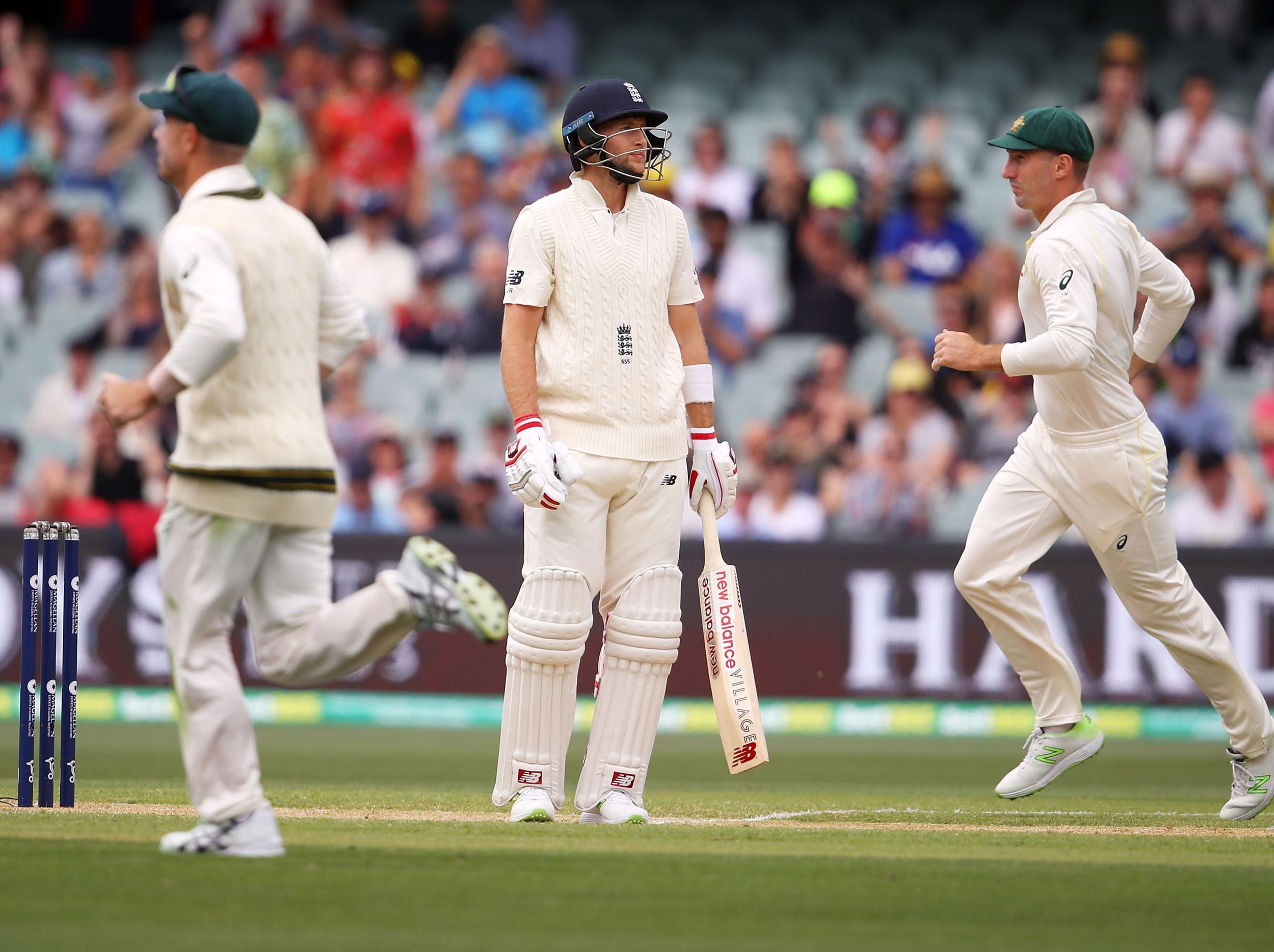
Trevor Bayliss, the coach, and Paul Farbrace, the assistant coach, must now do something that comes naturally to neither of them. They need to stop focusing on positives. Over the last two-and-a-half years, their achievement in creating a harmonious, relaxed dressing room, in which veterans and newcomers alike feel comfortable and invested, should not be downplayed. It has certainly been the exception, not the rule, in English cricketing history.
But gradually, it has also created an environment in which serious flaws can be elided rather than genuinely addressed. Heavy defeats can be spun. Systemic issues can be ignored. Difficult conversations can be avoided. This is fine and desirable in a club, a friendship group, even a business. But in international sport, with its solid certainties, its capital Ws and capital Ls, there can be no hiding place.
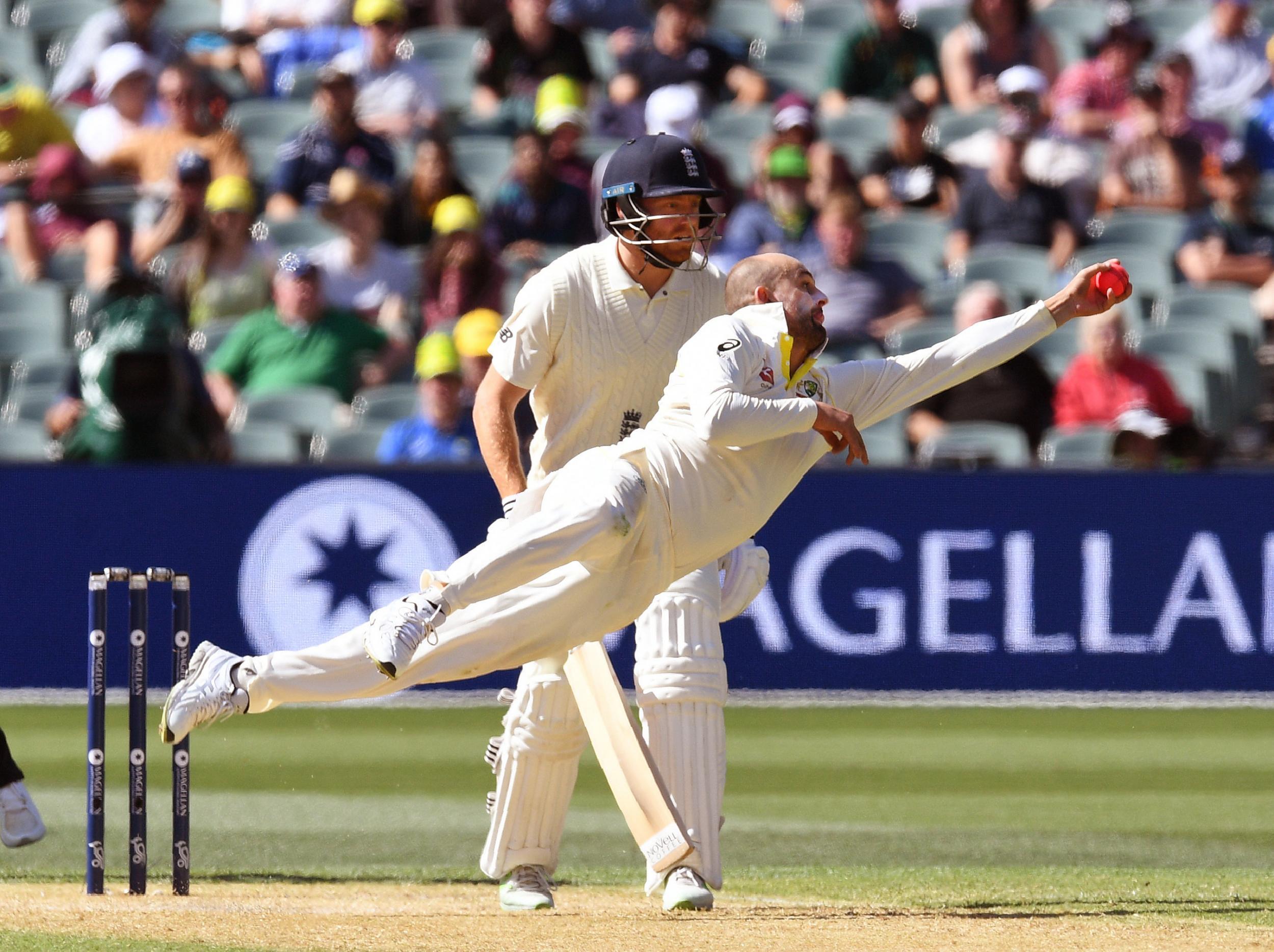
What might England focus on instead? The negatives, of course. They need to stop explaining away batting collapses as a bad day at the office. They need to stop defending under-performance. Most urgently of all, they need to stop swallowing down their fear as if it doesn’t exist. A little fear can be no bad thing. A looming humiliation can help sharpen the senses before it is too late. Avoiding the word “whitewash” does not make a whitewash go away.
England need to stop pretending this is like any other situation, because their deeds on the field are giving them away like a bad stink. Like it or not, they are now the minnows in this series, the handmaids, the ingenus, the chaff to the wheat. Australia have earned that status with some superlative all-round cricket. England need to acknowledge that dynamic, own it, turn it to their advantage. Because taking Australia on as equal partners has brought us to the current state of affairs.
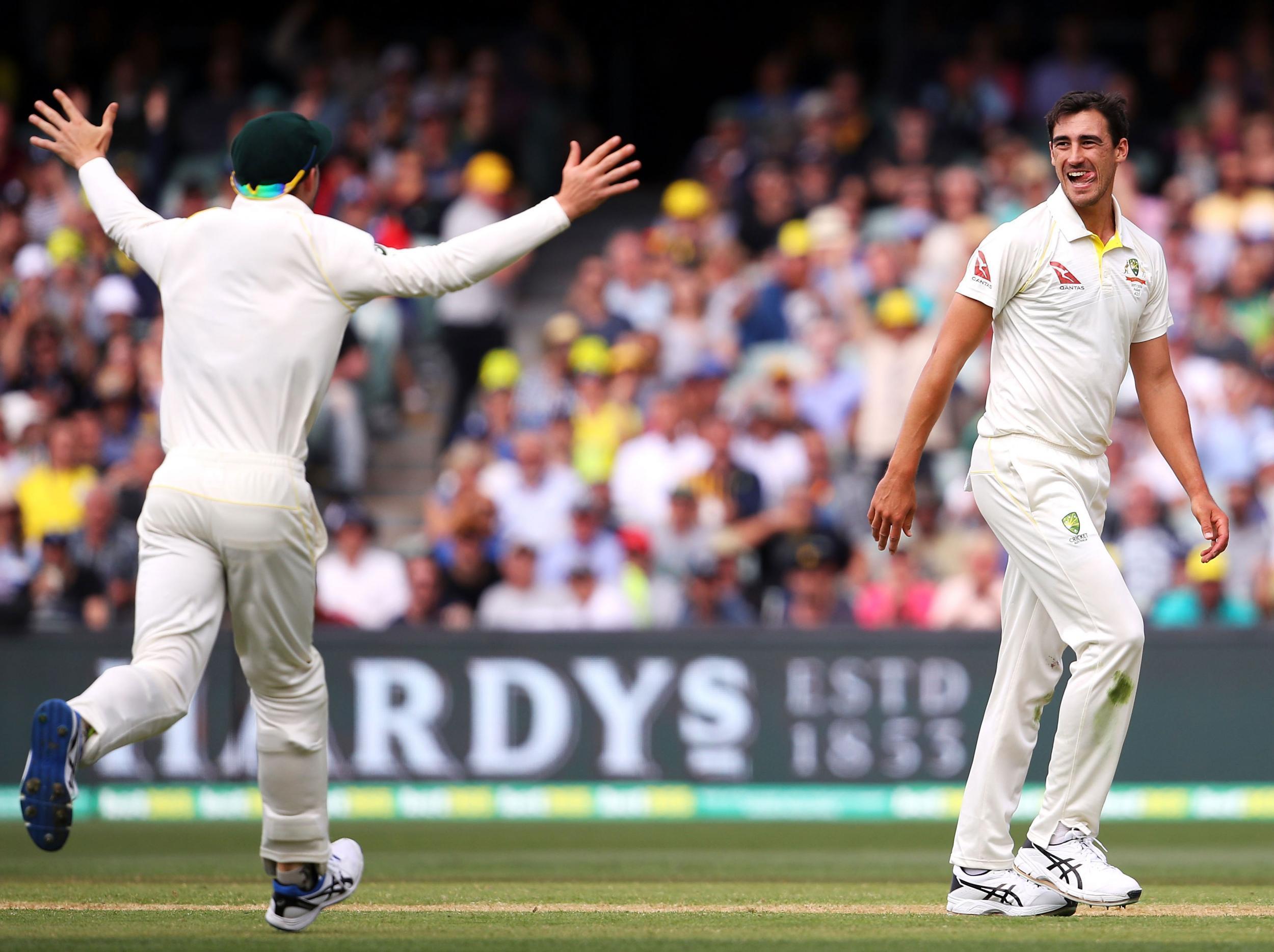
Which is - in short - that England are in some pretty dire trouble. Australia’s struggles under the lights merely underlined the fact that England will have to survive two night sessions of their own to save the game. James Anderson delivered his best spell of the series so far, Chris Woakes bowled with verve and vigour, and England scored some moral victories over Cameron Bancroft (4), David Warner (14) and Steve Smith (given out and reprieved on 0, given out and not reprieved on 6).
But this was a game essentially decided in the first session, when England crumbled from 29-1 to 128-5. Australia were magnificent, exploiting the early movement and finding the perfect length on this surface. There was no let-up in intensity: once Mitchell Starc and Josh Hazlewood had had their fill, on came Pat Cummins and Lyon to turn the screw still further. Their lengths - pitch well up or pitch well short - were immaculate.
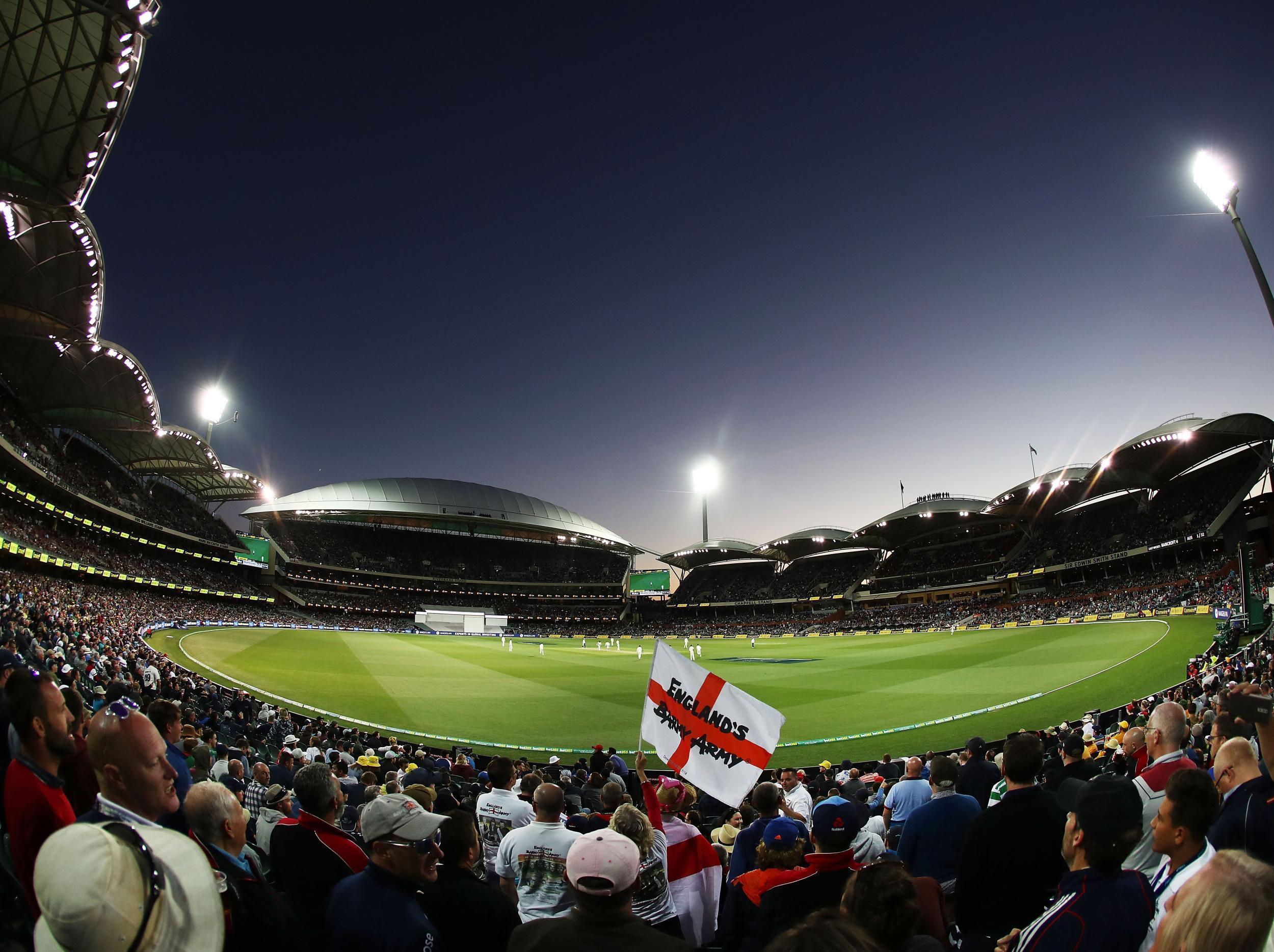
Vince’s big back-foot drive in the second over was a gift, complete with crepe paper rosette and shiny red ribbon. So too Root’s edge to third slip, a cover drive he actually had to reach for. So too Alastair Cook edging Lyon to slip for 37. By the time Cummins nipped one back into Dawid Malan and had him caught off the inside edge, England the team and England the country were beginning to sink into a deep depression, the sort that does not lift until January.
Soon after tea, Lyon took a stunning one-handed catch off his own bowling to dismiss Moeen. Five overs later, Bairstow drove the ball powerfully down the ground, only for Starc to stick out a right hand and grab it at the second attempt. If England did not already know that it was not going to be their day, this was surely the clincher.
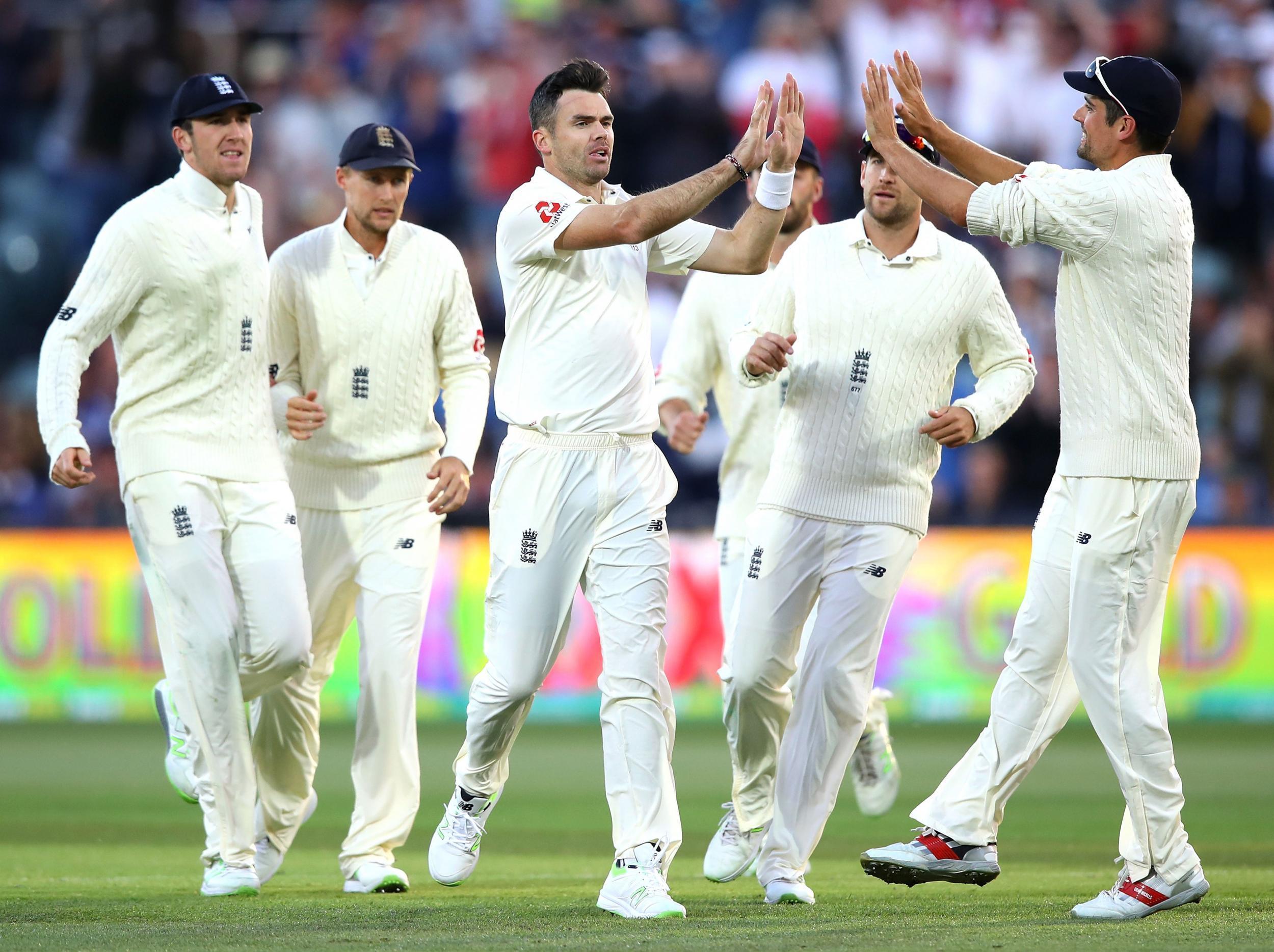
Woakes and Overton counter-attacked against an aging ball in the day’s most benign batting conditions, riding their luck against the short stuff, playing the ball on its merits and carving skilfully through point and gully. Their partnership of 66 was the highest England had managed since the first innings at Brisbane, and offered a template that England’s ailing batsmen might just be minded to try themselves.
Surprisingly, and perhaps a little negatively, Smith declined to enforce the follow-on despite a first-innings lead of 215. Instead, he sent his openers out into the treacherous twilight, and with the pink ball moving around corners, England had some early joy. Bancroft edged Anderson behind. Usman Khawaja scored an immensely uncomfortable 20 before being squared up and trapped LBW. Woakes produced two fine deliveries to net the big fish, Warner and Smith.
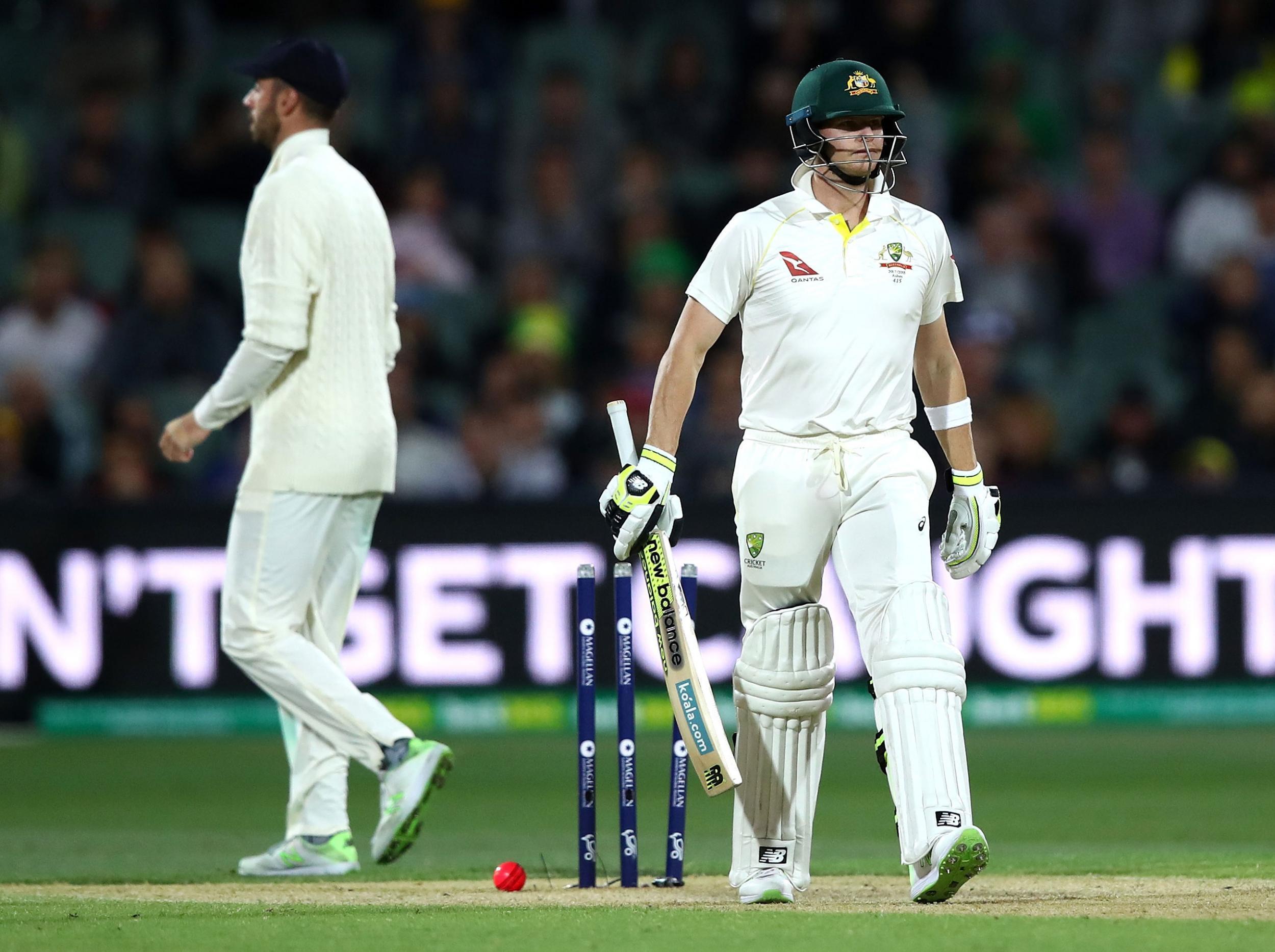
And as nightwatchman Lyon fended off the last few deliveries, five slips and a gully behind him, playing for time to make sure it was the last over, England could at least salvage something from the day. But victory still seems an impossibly distant hope, a draw almost as remote. And the suspicion remains that deriving excessive encouragement from this forlorn scenario would be pretty much the worst thing England could do from here.
Join our commenting forum
Join thought-provoking conversations, follow other Independent readers and see their replies
Comments